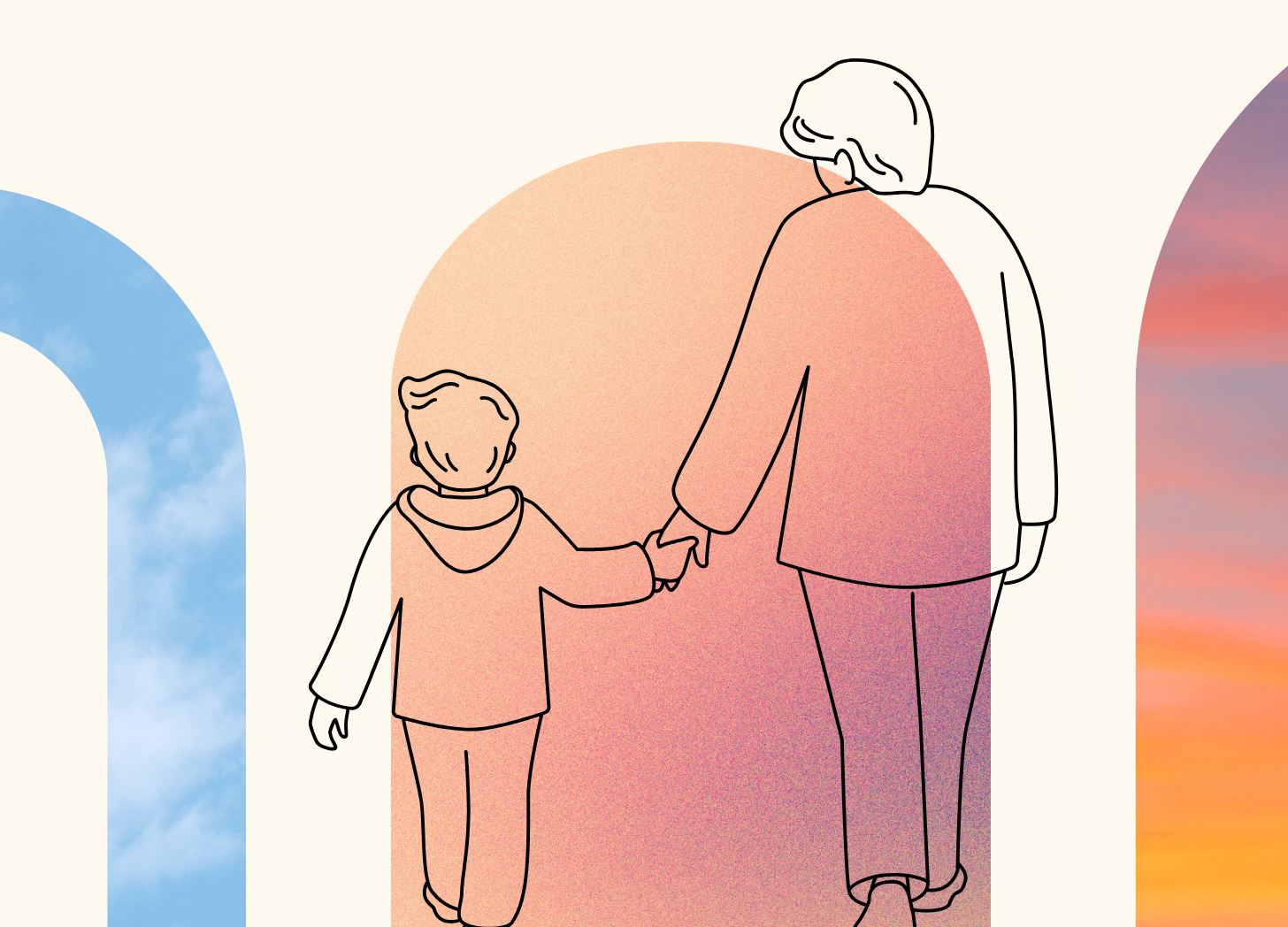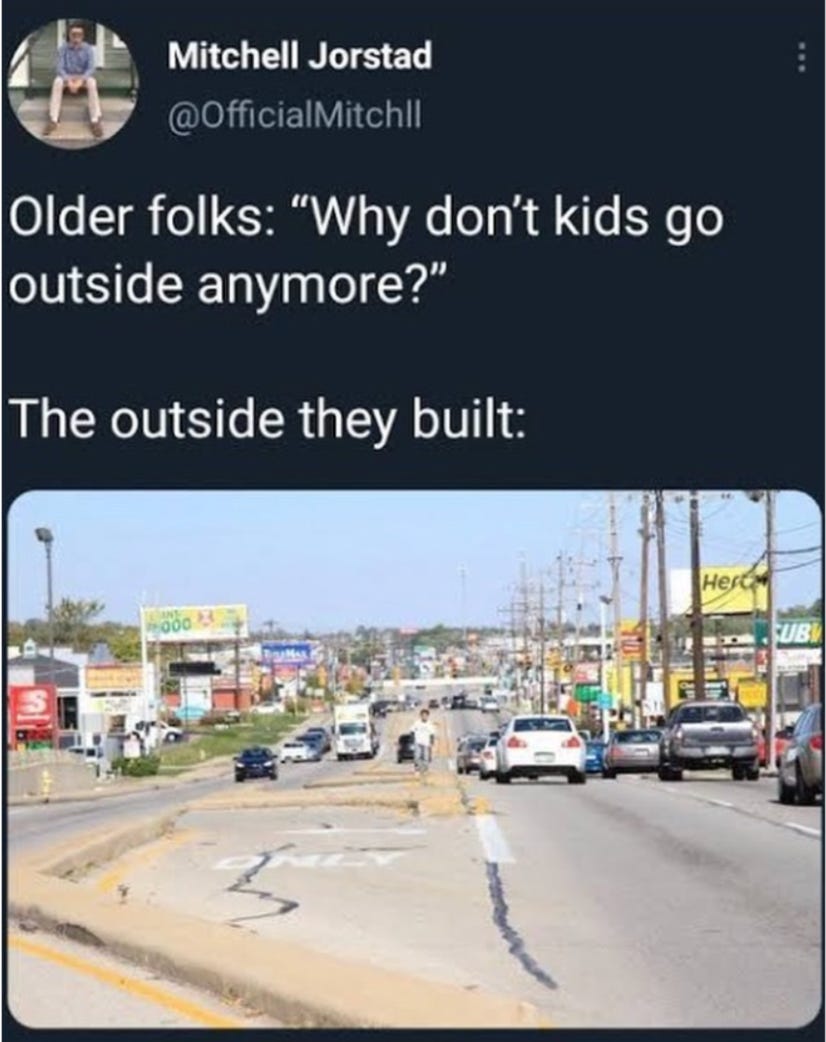Dear Climate Therapist: How can I apologize to my grandson without drowning in sadness?
A grandmother is faced with the question of how to navigate intergenerational climate conversations
Wow, friend. What. A. Year. Our Gen Dread community has grown to over 21,000 readers representing 140 countries, creating a space for exploring the intricate emotional landscapes shaped by the climate crisis. We’ve unpacked some of the hardest questions about what it means to live—and feel—with integrity and courage in this moment of climate upheaval. We launched our Dear Climate Therapist column, where brave readers (like the 67-year-old grandmother featured this week) dared to ask the uncomfortable questions that often go unspoken.
As we head into 2025, we’re doubling down on our commitment to deliver meaningful resources and foster a community grounded in mutual care and connection. We have big plans to expand our impact and deepen the dialogue. If you’ve been inspired by our mission, your support as a paid subscriber or one-time donor can help ensure that it continues. Big thanks for being here!
This week, a grandmother’s letter cuts straight to the heart of a deep and often unspoken struggle—how to face the climate crisis with young people in an honest way that takes accountability and shows compassion for the difficult position this puts the next generation in, yet is not drowned by guilt or despair. Her words reflect a tension shared by many in older generations reckoning with the environmental harm inflicted over their lifetimes that’s shaped the world we now live in, and the emotional impact this has on relationships with the young people inheriting it. Leslie Davenport, our resident climate-aware therapist, suggests the need to reframe this mix of guilt and grief—not as an endpoint but as a starting point for connection and meaningful action. There are many ways to demonstrate to young people that you care and that you’re showing up to protect their future. When done thoughtfully and intentionally in intergenerational climate conversations, what results is a powerful act of love. And it’s what we need now more than ever.
Design by Gen Dread.
Dear Climate Therapist,
How can I, a 67-year-old grandmother, let young people and especially my own family know how deeply sorry I am for the world that has been given to them? My grandson is 8 years old and very bright. I will wait until I hear him to bring it up, but I want to be ready and not just dissolve in a puddle of tears and sadness.
- Concerned Grammy
Now over to Leslie.
Dear Concerned Grammy,
I’m so glad you reached out. In your plea, I can hear the love you hold for your family and for our planet and the anguish it’s triggering. Your pain is shared by many in the older generations who’ve become aware of how our fossil fuel-based lifestyles have contributed to the current environmental breakdowns – and of the frightening and dangerous future that haunts our younger generations. The shock of this understanding often comes with painful waves of guilt and feelings of culpability. Thank you for your open-hearted awareness and willingness to face the most difficult issues of our time.
You’ve witnessed a lot of changes throughout your lifetime in our relationship to our rapidly warming Earth. The facts about the damage caused by atmospheric carbon dioxide were published as early as 1896 by Swedish scientist Svante Arrhenius – but public concern for the environment didn’t really take off until the release of Al Gore’s documentary “An Inconvenient Truth” in 2006. The term “climate change” wasn’t widely used until that time, and many people still aren’t fully aware of the devastating and rapidly escalating effects and their dangerous implications for the future.
Many of the obstacles to a widespread understanding of climate chaos and the challenges of transitioning to clean energy have been deliberately created by the fossil fuel industries. They want people to collapse into guilt and hopelessness, because if the blame is placed on our carbon contributions as individuals, it shifts the spotlight away from their pernicious, large-scale, and profit-driven motives, which is where most of the problem lies. That sector has long funded marketing campaigns that intentionally deceive the public about climate science and policy. They promote counterfeit science, practice greenwashing, harass scientists, and inject baseless uncertainty into the issues. While we need to practice worthwhile ways to reduce the carbon contributions from our personal lifestyle choices and assets, and your feeling of guilt is completely understandable, I invite you to consider this larger context. It might help you begin disentangling yourself from the sticky guilt trap this industry has set for all of us.
Climate change is a wicked, complex predicament that involves all of us, and we need to find our emotional footing and remain nimble and engaged with shifting opportunities for just and transformational change. For emotional support, working with a climate-aware therapist or participating in a climate café are wonderful ways to garner tools for your climate distress, and you can find resources for accessing these options on the websites of the Climate Psychology Alliance (North America and UK/International).
Community is essential for both personal support and action. Do you know about the many organizations specifically for older activists, like 1,000 Grandmothers and Third Act? Third Act’s homepage states that, “We’re a community of [elders] over 60 determined to change the world for the better. Third Act harnesses an unparalleled generational power to safeguard our climate and democracy.” Their aim is to unite the significant experience, skills, and resources that the older generations can bring to the table in order to “complete the unfinished work of our lifetimes.” There are ways to participate from home, in community gatherings, and online. I invite you to find one of their chapters in your area or explore similar organizations.
Your beautiful idea of offering a genuine apology to the younger generations will be even more meaningful if you can also share the ways that you’re working to protect and care for the Earth. It really matters to kids to see the important adults in their lives being actively engaged, because it sends them a powerful message that their future matters and that change is possible. It would be a gift to your grandson to introduce climate conversations, but you don’t want to process your feelings with him. So take advantage of some of the resources mentioned here to help you prepare for these valuable discussions.
There are many ways to open the door to intergenerational conversations, and these efforts are absolutely vital. Here are some examples of ways to involve your whole family: go on a fun, multi-generation outing to an aquarium or nature center, where you’ll find plenty of conversation-starters; share a climate-themed, age-appropriate book or movie and talk about the thoughts, questions, and feelings that arise; most schools/communities celebrate Earth Day, so you can ask your grandson what he’s learning; and finally, share how you’re exploring ways to make a difference. You can’t fix climate change for him, but you can help him discover the facts, provide a safe place for him to bring questions and feelings, join together in community efforts, and let him know he’s not alone in his concerns.
Once you’ve cultivated your own emotional resilience and found your action community, there may still be times when climate conversations evoke tears, and that’s perfectly natural. You want to model for the children in your family that climate emotions are okay and that they’re a part of the big picture. Your heartfelt care and the strength of your feelings – when supported by community and grounded in action – might just end up adding new depth to the connection between you and your grandson.
Sincerely,
Leslie
If you liked reading this, feel free to click the ❤️button on this post so more people can discover it on Substack 🙏🏼
And as an interesting aside…does nostalgia help you cope?
Have you noticed an intensification of nostalgic aesthetics and what's been called "nostalgiacore" particularly amongst young people? CD walkmans, minidisc players and tamagotchis have reemerged, alongside less consumerist forms of revisiting the past. I was recently interviewed for an Atmos article that describes this phenomenon as a potential coping mechanism for climate anxiety and living in the polycrisis. It gave me a lot to think about.
As shared in the piece: “I don’t want to write it off as being only some kind of retreat from reality or escapism because there’s certainly a place and a time for this kind of comfort-seeking,” Wray says. “It’s just that we cannot hang out under the covers forever. We need to find ways of breeding up more hardcore existential resilience so that we can actually engage in transformative actions with others to build a better world rather than just hide away from the scary system in which we’re living.” Read the full article on Atmos’ site.
‘Till next time!
In community,
<3 Britt & Gen Dread







Beautiful question and beautiful response, thank you!
As a 67-year-old grandmother. I am deeply sad but also extremely angry at the direction our country, America, has taken with this recent election and the immense impacts and detriment it will have on the entire world. I am a member of third act but will look into 1000 grandmothers as well. My grandchildren are have been very concerned about climate change since before they were teens and this is heartbreaking, but also in emboldening. We mothers and grandmothers, fathers and grandfathers who are concerned and ready to take righteous action need to do so ASAP for the future of our planet and our grandchildren. There really is no time to lose with our incoming presidency, and we must fight – fight for our children's futures and that of our our planet and life on earth.